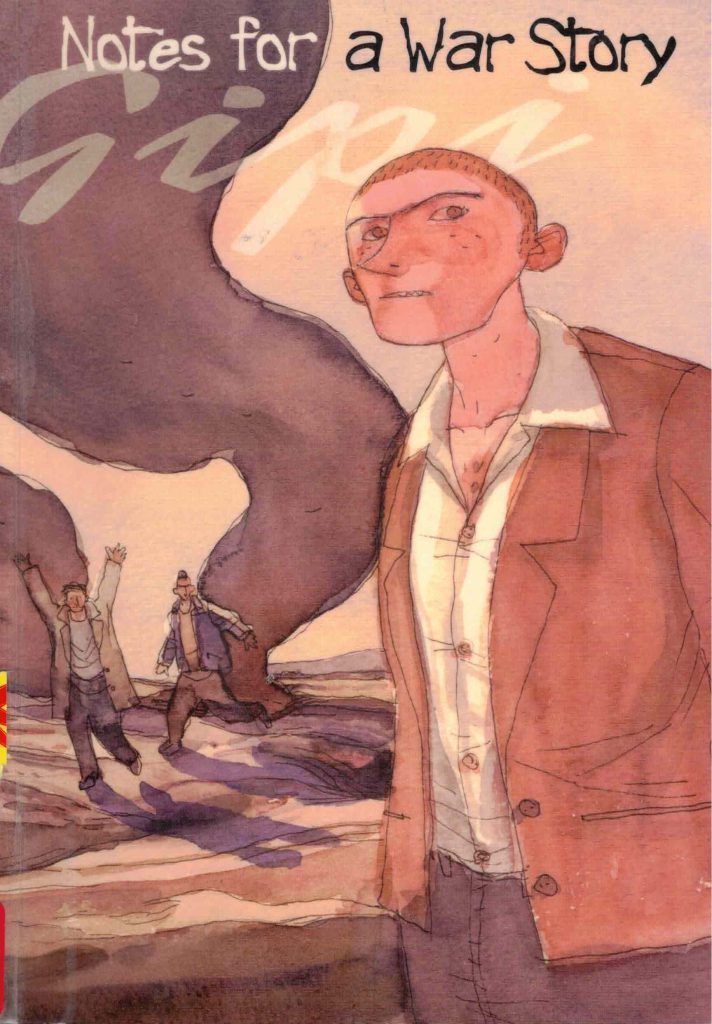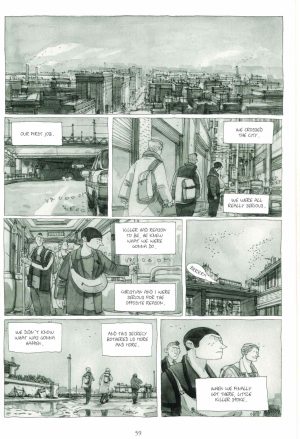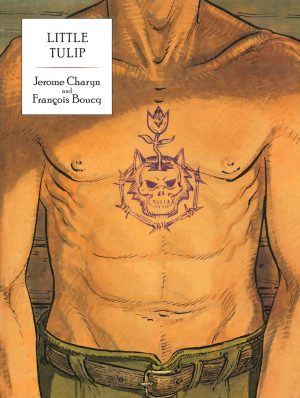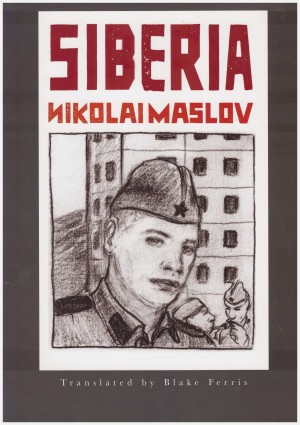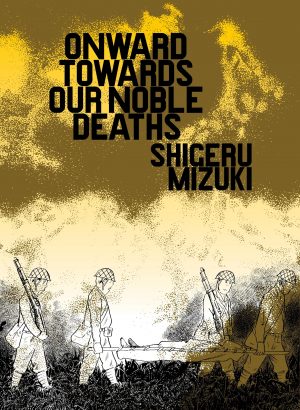Review by Colin Credle
Not too long after its release in Italian, Notes For A War Story was awarded the 2006 Best Book of the Year at the Angoulme International Comics Festival. It also won the 2005 Goscinny Prize for Best Script.
As both author and illustrator, Gipi is well known for unique, enthralling tales of inner struggle complemented with both oil brush strokes and primitive straight-line illustrations. The back and forth and combination of these two styles support each other well in creating and changing the mood here.
It’s unclear when or where Notes For A War Story is happening, but this is deliberate to indicate it could happen anywhere at any time. Three idle teenagers are trying to sell car parts for food during an unclear, random time of war. Villages have been destroyed, but it’s not clear which ones are still functioning. Quotidian tasks continue amidst the violence – why wouldn’t there still be a functioning night club when many are hiding from snipers? Social norms have unravelled. There is a conspicuous absence of the feminine – not just the almost total absence of women, but also kids – anything that would remind us of affection, families and good intentions. Most of what we see reminds us that life is “..nasty, brutish and short…” and no one cares who dies and who lives, especially not fate. It doesn’t take much to remove the thin veneer of civilization and decency.
Our three hero teenagers, “Little Killer” Stefano, Christian and the narrator Guiliano share the lack of family in their lives and distinguish themselves with different levels of ruthlessness, naivete, innocence and desire to belong. Then they meet Felix. Felix is a charismatic thug who is decisive in a decidedly chaotic environment, and clearly thriving from the war. Felix’s casual disregard for money, for authority and for the underlying, lethal danger of the war all cast a heady spell. With a keen eye, Felix sees himself in “Little Killer” Stefano and anoints him the leader for collecting debts in the big city. “ The other two are distracted with the excitement of the trip, the windfall of more money than they’ve ever seen and the initial success they have in fulfilling Felix’s tasks. As their tasks become more dangerous, the boys start to demand more information from Little Killer on what exactly they’re doing.
What follows is gripping as the three boys are likeable, believable and their motivations and shortcomings are clear to see as they develop. There is the shedding of innocence, but with the backdrop of war, the consequences of not growing up fast are lethal and unforgiving. War is random and fickle, and no amount of decisiveness can keep it at bay.
Gipi uses the foretelling of some rather bizarre dreams to interrupt the story and invest it with greater undercurrents of history at play. These become clear unexpectedly at the end, in a way that brings great clarity to which moments in the story were pivotal in hindsight – we just didn’t quite realize it at the time, just like our hero and narrator didn’t realize how close he came to annihilation.
